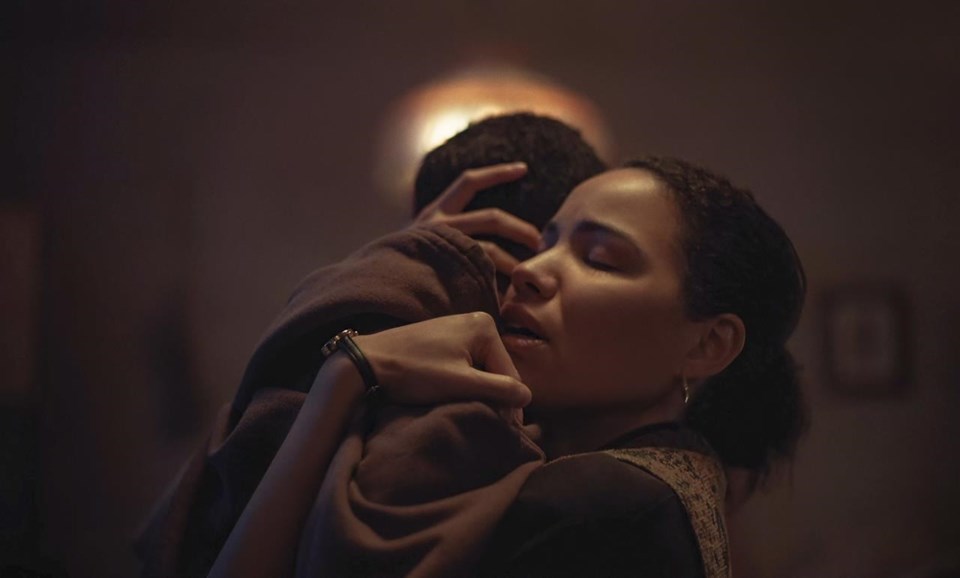Two 11-year-old boys navigate school, friendship, family and change in Minhal Baig’s lyrical drama “We Grown Now.” It’s an evocative memory piece, wistful and honest, and a different kind of portrait of a very infamous place: Chicago’s Cabrini-Green public housing development.
And, pointedly, it’s a film that might not have existed without Participant, the activist film and television studio that .
Baig sets her film in the fall of 1992, a moment in which the promise of the 1940s urban renewal project had curdled beyond repair. It was there, on Oct. 13 of that year, that 7-year-old Dantrell Davis was killed by a sniper while walking to elementary school with his mother. A few days later, the horror film “Candyman” opened across the country with its Black boogeyman and white heroine, inspiring pointed critiques for its regressive racial stereotypes.
No longer the place of “Good Times,” Cabrini-Green had become a metonym for the failures of the system. A few years later, authorities would begin demolishing buildings there, the last of which came down in 2011. It’s now home to luxury apartments.
But childhood is childhood for Malik (Blake Cameron James) and Eric (Gian Knight Ramirez). And the biggest thing on their mind at the beginning is transporting a found mattress down the stairs of the high rise, through the streets and sidewalks to their playground area where it will provide the perfect landing cushion for their favorite activity: Jumping.
Malik lives with his sister, mother Dolores (Jurnee Smollett, in a lovely performance) and grandmother (S. Epatha Merkerson). The adults are stable, calm and positive influences on the lives of the kids, keeping them safe in their little enclave. Still, realities of their small world inside Cabrini-Green do occasionally creep in (or, rather, sometimes burst in at 2 a.m., when authorities decide to raid and trash their apartment looking for drugs that aren’t there). Dolores tries to protest and stick up for their rights but is painfully aware of her powerlessness over the ever-escalating hostilities towards them.
The death of a classmate sends everyone into a spiral. Voices from the outside suddenly emerge, from Chicago’s mayor Richard M. Daley and others vowing to clean up Cabrini-Green. There is a pointed disconnect with what Malik and Eric’s day-to-day is actually like, playing, jumping, teasing little sisters and sometimes escaping the dull nature documentary at their school to have a real adventure. Some of these moments land, especially the banter between the boys, but some are a little clunkier. These are the ones that lean more into whimsical ideas of play and inspiration (like when they decide to visit the Art Institute on their own and have a Ferris Bueller moment with the Seurat painting) than an authentic portrait of childhood. But also, why not show the kids being self-motivated to talk about art?
And it’s one of their last adventures before reality comes back to fracture their bond, when Malik’s mother makes the decision to leave Cabrini-Green for a job opportunity in Peoria. Their goodbyes may just have you reaching for a tissue — a testament to the two young actors.
Baig is a product of Chicago, though not Cabrini-Green. There are perhaps questions about who should tell whose story, but she has come to it with a palpable empathy and interest, which is all you can ask for, really. Why would we want to make rules about filmmakers stepping outside the narrow confines of their personal experience to tell different stories?
That care shines through in every frame (evocatively shot by Pat Scola), for the kids growing up in these circumstances, for the adults trying to shelter them, and for the magic they’re able to find despite everything. It is a delicate look at what life might have felt like beyond the fear-mongering headlines, with an elegant score from Jay Wadley. “We Grown Now” is slightly dreamy and stylized, too, but instead of a liability, it makes this very small story feel grand, poetic and cinematic — just like it would for an 11-year-old.
“We Grown Now,” a Sony Pictures Classics release in New York, Los Angeles and Chicago on Friday and expanding April 26, is rated PG by the Motion Picture Association for “thematic material and language.” Running time 93 minutes. Three stars out of four.
___
This story was first published on April 17, 2024. It was updated on April 24, 2024 to correct the last name of actor Blake Cameron James.
Lindsey Bahr, The Associated Press




